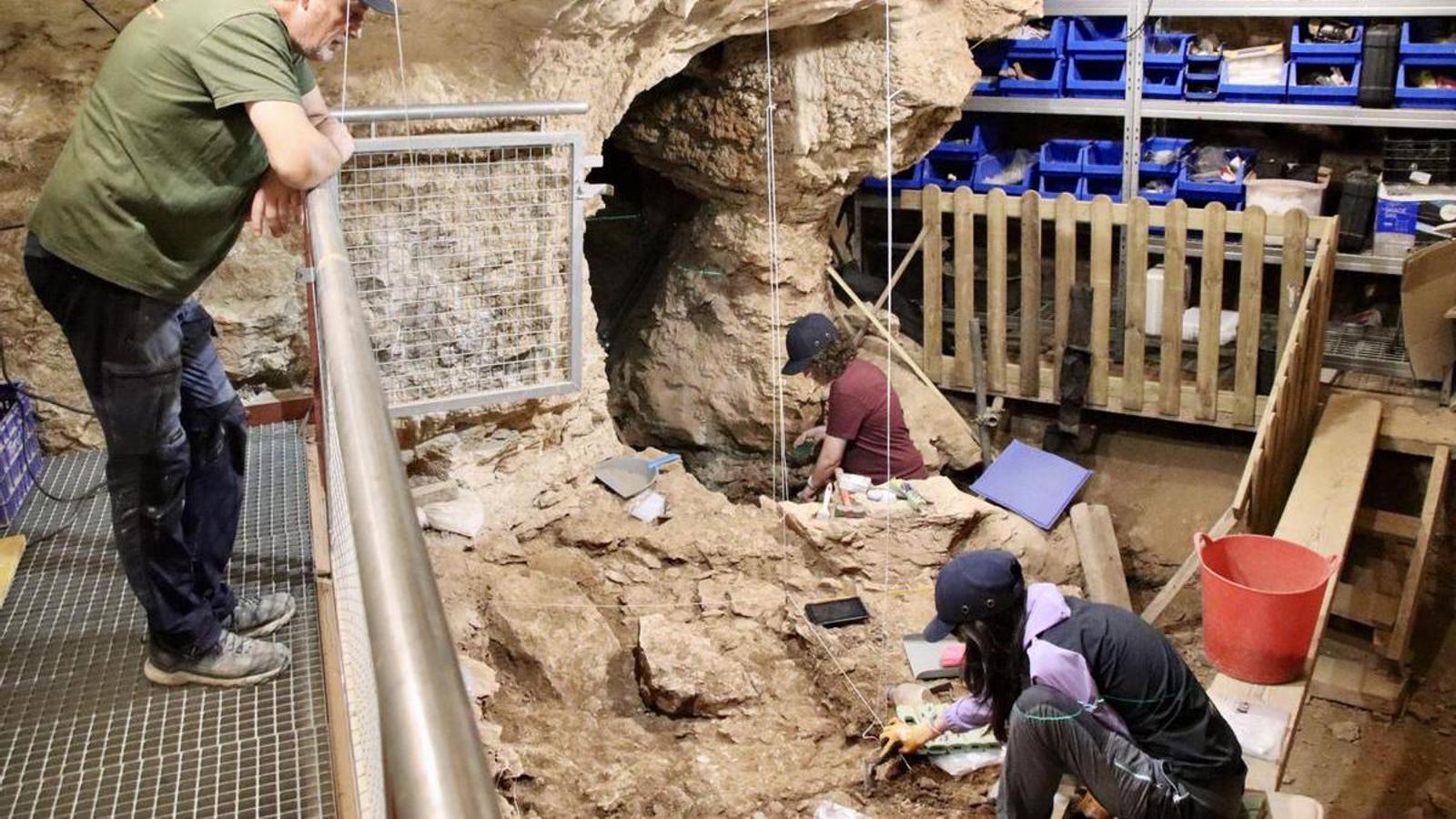In Moianès, the Neanderthals took longer to become extinct
An excavation campaign in the Teixoneres de Moià region has discovered a hearth dating back between 38,000 and 40,000 years.

Barcelona"We didn't expect it," Jordi Rosell, the researcher leading the excavation campaign in the Toll and Teixoneres caves in Moià, tells ACN. He is referring to the discovery of a hearth in Teixoneres that is between 38,000 and 40,000 years old and corresponds to the "last Neanderthals." This discovery confirms that, in Moià, Neanderthals took a few thousand years longer to become extinct than in other parts of Europe.
The discovery of the hearth was not the only discovery in the area: last year, a survey was carried out back 230,000 years, during which the remains of large animals, such as rhinoceroses, horses, deer, and urs, were found. Rosell explains that, thanks to this work, they suspect the discovery of the jawbone of a large animal. This year, the area has been prepared so that researchers can work next year, which promises to be prolific.
A group of archaeologists is also working at the entrance to the Teixoneres Cave, where, starting in 2016, Neanderthal remains were found, and where there may be more. If it was difficult to identify them then because the bones were very fragmented, Rosell points out that it is now easier thanks to the evolution of techniques. In the Toll Cave, efforts are focused on excavating the exterior area. Although no major discoveries have yet been made, it is known that this is where the cave bear hibernated, and when a specimen died, the bones were used by the Neanderthals.
"It could be confirmed that the Teixoneres Cave contains practically the entire history of the Neanderthals of Moianès," Rosell remarks. He emphasizes the importance of understanding how they lived and organized themselves because "they are still our first cousins and are part of our origins." After almost a year of work, the excavation campaign led by Rosell with researchers and archaeologists from IPHES (Catalan Institute of Human Paleoecology and Social Evolution) will conclude on Wednesday, July 23.
